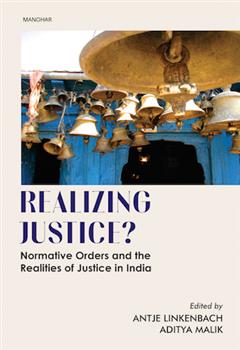OTHERS
REALIZING JUSTICE?: NORMATIVE ORDERS AND THE REALITIES OF JUSTICE IN INDIA

How is justice conceptualized? Does it appear as a distinct, guiding normative principle in Indian intellectual traditions? How does it relate to other concepts like equality, and responsibility? What are the ground realities of justice in India? Are there competing normative orders? Are there forms of compliance, or are there discrepancies between normative rules of justice and the everyday practices of social actors? Are ideal rules ignored, modified, adapted in everyday practices according to the particular contextual realities? Could we identify particular arenas of (in)justice, like class, caste, gender, or natural resources? Is justice something that is continuously being ‘realized’ in shifting historical and social contexts? These questions compel us to reconsider interlinked fields essential to theorizations of modernity – the autonomous individual, extraordinary kinds of agency and knowledge, equality, aspiration, and choice. Such theorizations of the individual in the context of defining modernity and justice have deep implications in how the political world is organized and imagined that, in turn, inform the ideas of citizenship, democracy and secularism that underlie modern political systems such as the nation state, but also entrenched forms of institutional, social and personal violence, inequality, and discrimination.
This book provides a penetrating, novel approach to an understanding of the ideas, concepts, meanings, and practices surrounding justice and its related concepts in the past and in contemporary India. The authors base their analysis either on meticulous and extensive ethnographic fieldwork conducted among different communities in rural and urban milieus by focusing on oral narratives, ritual and religious contexts, local historical accounts, and the experience of marginalized communities or on a deep, rigorous textual analysis of modern and pre-modern written sources such as early Sanskritic texts dealing with law, recent legal documents, inscriptions, and land deeds among others. About the Author Antje Linkenbach, a sociologist and social anthropologist, is long-term Fellow at the Max Weber Centre for Advanced Cultural and Social Studies, University of Erfurt. She has widely published in the fields of social theory, development critique, environmental justice, and social movements.
Aditya Malik is Founding Professor in Humanities and Social Sciences at Plaksha University. His research and publications focus on oral traditions and ritual performance; religion, social justice and law; historiography; as well as the intersections of humanities, social sciences and technology.
Some more books of similar interest